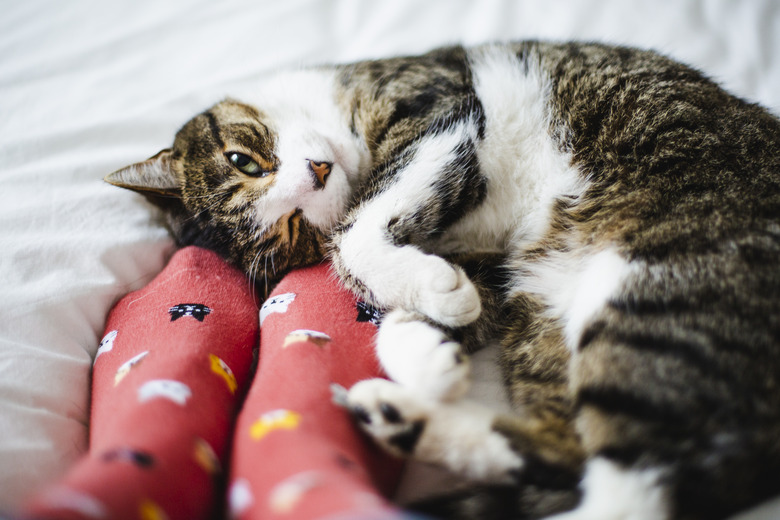Why Does My Cat Sound Like He Is Gagging?
Your cat is making that horrible heaving sound again, part coughing, part gagging. Sometimes it's accompanied by vomiting or a hairball. It's hard to hear her feel so unwell — and it's sometimes even harder to find out just why she gags. But it's important to diagnose the reason for the retching because some causes can be serious and need treatment from your veterinarian.
Coughing up hairballs
Coughing up hairballs
One of the most common causes of cat gagging is an accumulation of fur he's trying to expel. All cats lick to clean themselves, and loose fur can be caught up on their rough tongues and swallowed. The fur sometimes passes through their intestines, but can also accumulate in their stomach. Sometimes, especially in long-haired cats, the fur can get stuck in their throats. Your cat can make gagging sounds when trying to rid himself of the hairball.
Hairballs can often be treated at home. Feeding your cat a little oil or butter can help lubricate her digestive tract, making it easier to pass the fur ball. There are also hairball gels and treats that your cat can ingest to help make it easier to pass the hairball. An ounce of prevention can go a long way to stopping hairballs as well. Brush or comb your cat daily to remove shedding fur. Make sure she's drinking enough water and eating a healthy diet. Catnip and cat grass can be both a treat for your kitty and give her a little extra fiber to move the hairball along.
Asthma and respiratory illnesses
Asthma and respiratory illnesses
Like humans, cats can also get asthma, leading to coughing and breathing difficulty. If your cat is gagging, breathing with an open mouth, and his gums and tongue have turned gray or blue, head to the vet right away, where he can get breathing treatments or corticosteroids.
Respiratory infections, such as bronchitis, can also lead to a cat making a gagging sound or coughing and require a trip to the vet. Sometimes it's an excess of mucus in the nose or throat due to the illness that makes a cat gag. It's important to get prompt treatment because respiratory infections can turn into pneumonia.
Heartworm associated respiratory disease, or HARD, for short can cause coughing and gagging as the parasitic worms colonize your the blood vessels in your cat's lungs. Heartworms are diagnosed via a blood test. However, medications for dog heartworms can be dangerous for cats, and symptoms rather than the worms themselves are treated in cats.
Obstructions and tumors
Obstructions and tumors
Sometimes your cat dry heaving can be due to getting something caught in her throat, such as a small piece of food or a blade of grass. Often your cat's coughing will help expel the obstruction. But if your cat gags for a long time or seems to be having trouble breathing, a vet should evaluate the problem.
Tumors that occur in the larynx, lungs, or trachea are rare in cats, but could cause gagging. If your cat has a cancerous tumor, it's likely he will also be losing weight and having trouble eating. Your vet can do an X-ray or ultrasound to get an image of the tumor to help plan treatment.
Always check with your veterinarian before changing your pet's diet, medication, or physical activity routines. This information is not a substitute for a vet's opinion.
